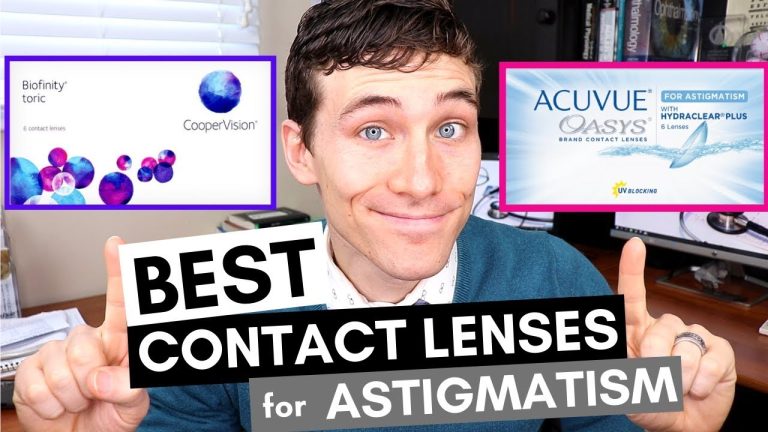All You Need to Know About Non-Prescription Contact Lenses for Optimal Vision Care
Welcome to our website focused on optical and vision care products. We are here to discuss a topic that seems to be popular among teenagers and young adults: non-prescription contact lenses. These contact lenses, also known as cosmetic or colored lenses, have become more accessible in recent years, but that does not mean they are risk-free.
The sole purpose of these lenses is to change the wearer’s eye color or to create a certain effect, such as making their eyes seem bigger. Many people find these lenses attractive and fun, but it is important to understand the potential dangers of using them without a prescription. We will explore some of the risks and benefits of non-prescription contact lenses in this article, so you can make an informed decision before purchasing them.
The Risks of Wearing Non-Prescription Contact Lenses
One of the biggest risks of wearing non-prescription contact lenses is that they may not fit correctly. Contact lenses need to fit properly in order to be safe and effective. A poorly fitting contact lens can cause discomfort, irritation, and even damage to the eyes. Additionally, non-prescription contact lenses can cause infections, particularly if they are not cleaned and stored correctly.
Another risk associated with non-prescription contact lenses is the lack of oversight. When you purchase contact lenses from your optometrist, they undergo several checks to ensure they are safe for your eyes. However, non-prescription contact lenses are much less regulated, so you cannot be sure if they meet safety standards. This is why it is important to purchase your contact lenses from a reputable source and to follow the instructions for cleaning and storing them carefully.
The Benefits of Using Non-Prescription Contact Lenses
Despite the risks, there are some benefits to using non-prescription contact lenses. As mentioned earlier, they can be an excellent way to change your eye color or to create a certain effect. Additionally, many non-prescription contact lenses are made from breathable materials, which can help keep your eyes healthy and comfortable. These lenses are also much cheaper than prescription lenses, which can make them a more accessible option for people on a tight budget.
How to Decide if Non-Prescription Contact Lenses are Right for You
If you are considering using non-prescription contact lenses, the first thing you need to do is speak to your optometrist. They can help you understand the risks and benefits of using these lenses and can recommend a reputable source for purchasing them. Additionally, they can help you determine if you are a good candidate for contact lenses in general.
If you do decide to use non-prescription contact lenses, it is important to follow the instructions for cleaning and storing them carefully. You should also be aware of the signs of an eye infection, including redness, irritation, and discharge. If you experience any of these symptoms, you should remove your contact lenses and speak to your optometrist as soon as possible.
The Bottom Line
Non-prescription contact lenses can be a fun and inexpensive way to change your eye color or to create a certain effect. However, it is important to understand the potential risks and to speak to your optometrist before using them. By following the instructions carefully and being aware of the signs of infection, you can enjoy the benefits of non-prescription contact lenses without putting your eye health at risk.
- Key takeaways:
- Non-prescription contact lenses are cosmetic lenses that change the wearer’s eye color or create a certain effect.
- These lenses can be fun and inexpensive, but they come with risks, including poor fit and infection.
- It is important to speak to your optometrist before using non-prescription contact lenses and to follow the instructions carefully.
Contents
Most wanted in Hoya Vision:
What brand lenses does Costco use?
Hoya Lens Engravings
Which lens is better Alcon or Johnson and Johnson?
What’s the difference between 1.5 and 1.6 lenses?
What’s the rarest eye color?
Why do my glasses lenses scratch so easily?
1.53 Trivex Impact Resistant
Hoya Sensity Vs Transitions Xtractive
How to Choose the Right Temple Type for Your Glasses
What lenses do Costco use?
















